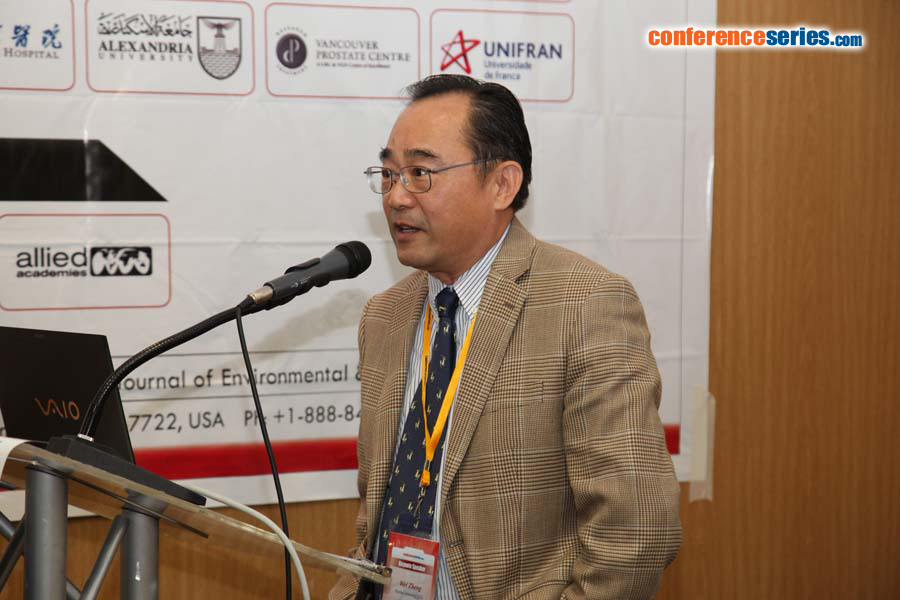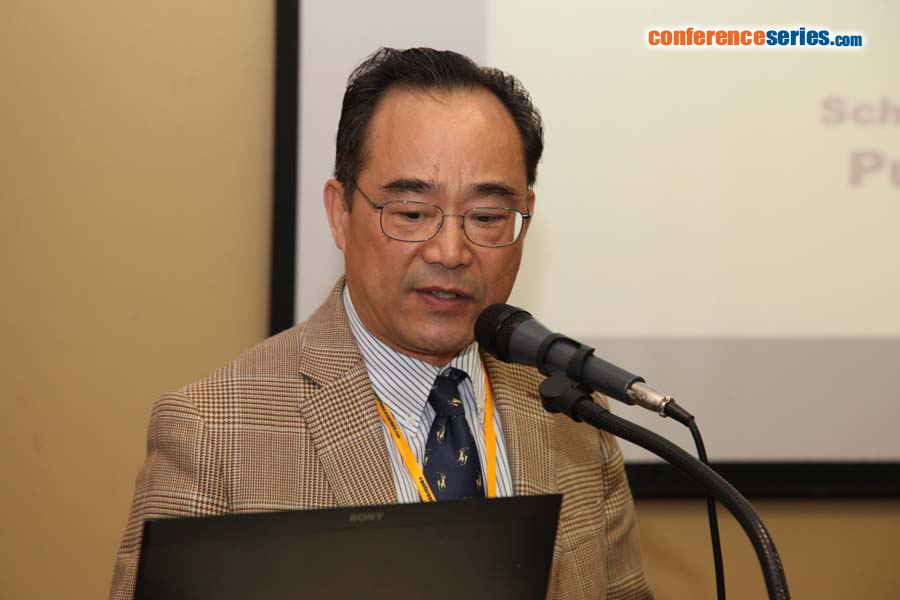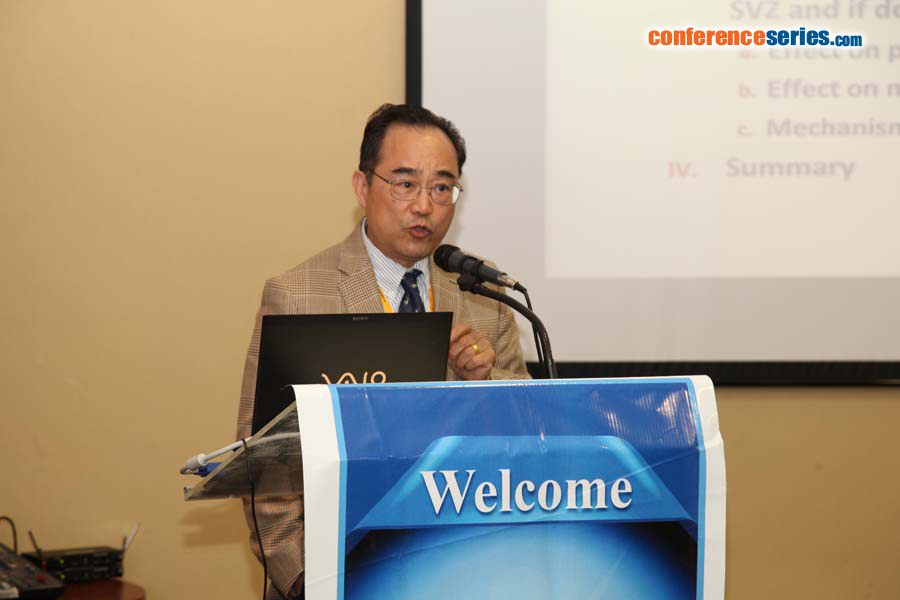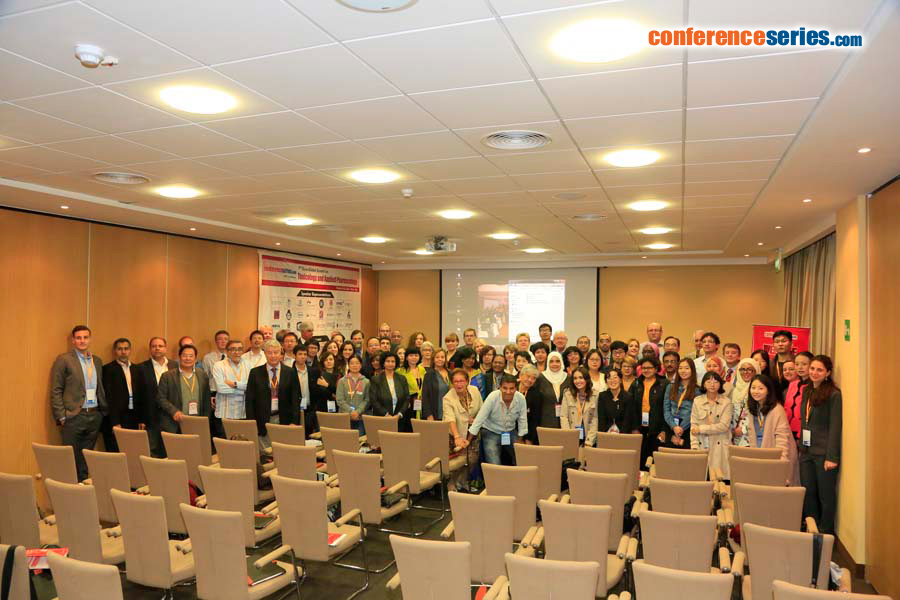
Wei Zheng
Purdue University, USA
Title: Role of altered adult neurogenesis in manganese-induced Parkinsonian disorder
Biography
Biography: Wei Zheng
Abstract
Neural stem/progenitor cells (NSPCs) in the adult subventricular zone (SVZ) have the capability to self-renew and to migrate via the rostral migratory stream (RMS) to reach their final destination, the olfactory bulb (OB), where they mature and integrate into the local neuronal circuitry. Adult neurogenesis plays an important role in the etiology of neurodegeneratieve diseases. This study was designed to determine if exposure to toxic metal manganese (Mn) disturbed the proliferation, migration, survival and differentiation of NSPCs from SVZ via RMS to OB. Adult rats received a single ip-dose of BrdU at the end of 4-wk Mn exposure to label proliferating cells. Immunostaining and cell-counting showed a 48% increase of BrdU(+) cells in Mn-exposed SVZ than in controls (p<0.05). The BrdU(+) proliferating cells were identified as a mixed population of GFAP(+), Nestin(+) and DCX(+) cells, representing type-B neural stem cells, type-C transit progenitor cells, and migratory neuroblasts, respectively. Another group of adult rats received 3 daily ip-injections of BrdU followed by Mn exposure. By 4-wk post-BrdU labeling, most surviving BrdU(+) cells in the OB were differentiated into NeuN(+) matured neurons. However, survival rates of BrdU/NeuN/DAPI triple-labeled cells in the OB were 33% and 64% in Mn-exposed and control animals, respectively (p<0.01). These results suggest that Mn exposure initially enhances the cell proliferation in adult SVZ mainly by increasing type-B cells. In the OB, however, Mn exposure significantly reduces the surviving adult-born cells and markedly inhibits their differentiation into mature neurons, resulting in an overall decreased adult neurogenesis in the OB. (Up to 250 words)






